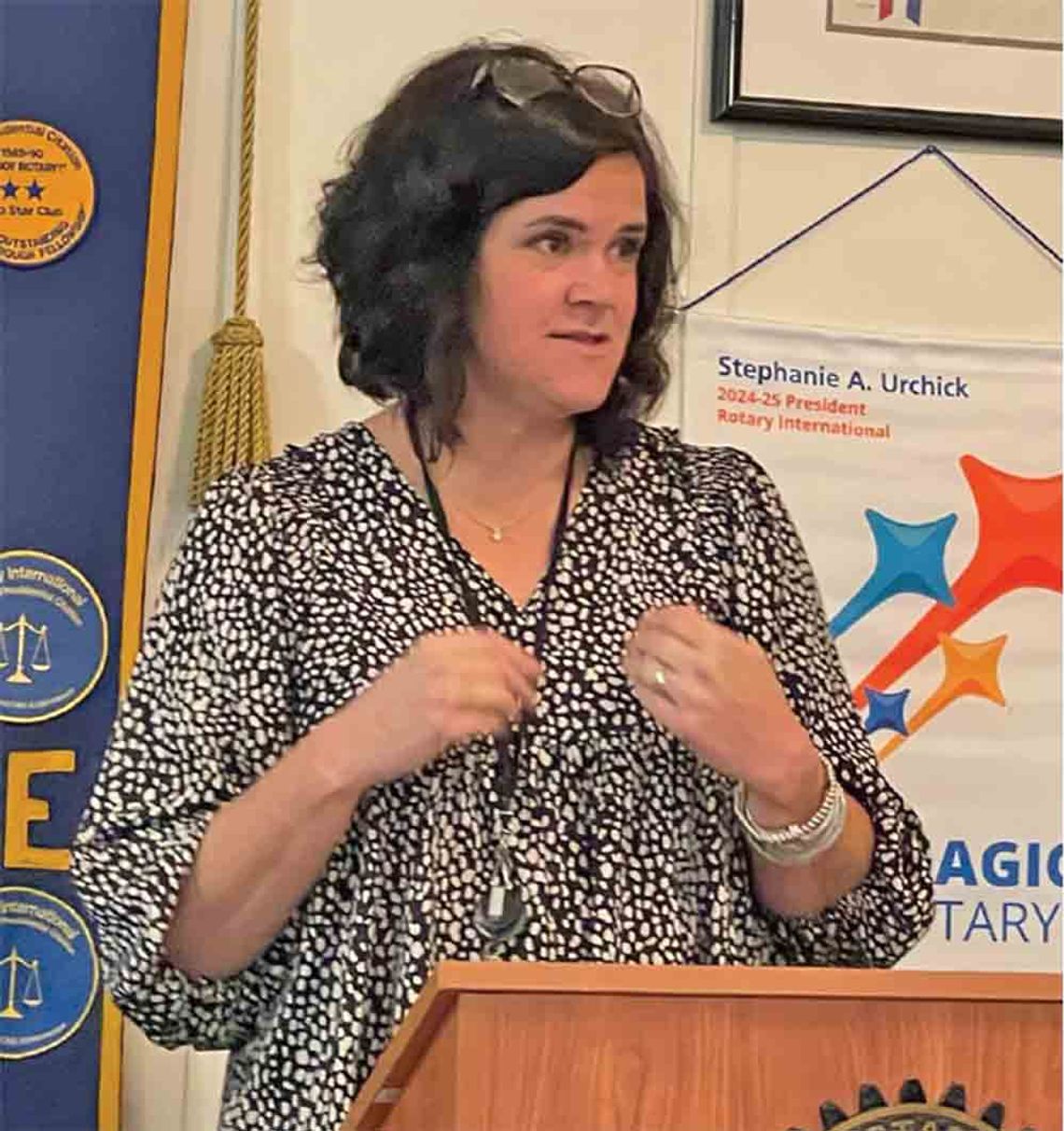By Mollie LaSalle
WOODVILLE – Kelli Scroggins, who is the diabetes education coordinator at the Chief Kina Health Clinic at the Alabama Coushatta Reservation, brought the program last Wednesday at the noon meeting of the Rotary Club of Woodville.
Rotarian Bob Boykin introduced Kelli by saying that” this is a disease that is the scourge of not only native Americans, but also the general public, and is increasing at a terrible rate. Kelli is one of the finest educators on this disease. She has found a niche that fits her well…she is bringing a program that is very timely”.
Scroggins began by saying, “I manage a couple of different grants at the reservation, when they hired me, they wanted me to be the diabetes coordinator, and I said, that’s great, what would you like me to do? They said, you can build a diabetes program; I said okay”. She elaborated that, “when you go to the doctor and they tell you to exercise more, and reduce stress, they don’t tell us exactly how to do that. One of the things I would want as a diabetic patient would be access to healthy foods. So, I went to my boss, and I said I would like to start a garden. I had a whole presentation ready on why we need this, and she said you can do it. We started with a couple of raised beds, it was fabulous interaction with the community. We doubled that and doubled it again. We are now at four acres, and we still don’t have enough room. We built raised beds for our patients so it would be easier for them. We got mushroom compost, and really good seeds”.
Scroggins added that a bonus to this endeavor was, “they (her patients) know what’s in the vegetables they are eating, and they went outside, they got exercise, and they soaked up the vitamin D. Our goal was our patients would be excited and want more. Our next goal was to till up area in the community. We started tilling up land at patient’s homes, and they started growing. We want patients to take over ownership of their care and get involved”. She went on to say, “I say this to our patients and I am saying this to you, the reality is that the healthcare professional works for you. You are the most important person in your healthcare. The role you take is the most important. We want empower people to take care of themselves”.
The clinic has a table set up in the lobby for patients to take what they want and leave what they don’t. They also have meat and vegetable distributions most Thursdays from 4-7 p.m.
Scroggins added, “our current tribal chief called and said, “Kelli, can you help us with our seeds, and our plants, we want to get back to gardening, we have three acres to plant”. Scroggins continued, “we have three grants to work with, so that was like music to my ears. I said, yes I can help, I would love to, and we supplied the seeds and the plants, and we called it the Chief’s Garden. I used another grant to buy protein from local farmers, producers, and ranchers (after her boss said she couldn’t have chickens). We support them financially, and I turn around and give that out to tribal citizens. We have beef, pork, chicken and bison. We also have a gym at the reservation that no one uses, so I go over and they were very nice, wonderful people. They showed me how to use the equipment. We started an exercise group, and started posting it on social media. We are going to go to the gym, and learn about the equipment, and lift weights, and stretch. That started growing and multiplying. Physical activity and good nutrition are the two most important things I focus on in our community”.
She summed it all up this way, “Diabetes is more prevalent in native Americans than all other races combined. You can’t do anything about your genetics or family history. What you can do is try to eat healthier, exercise, take your medicine, and try to maintain a regular appointment with your doctor”.











Comment
Comments